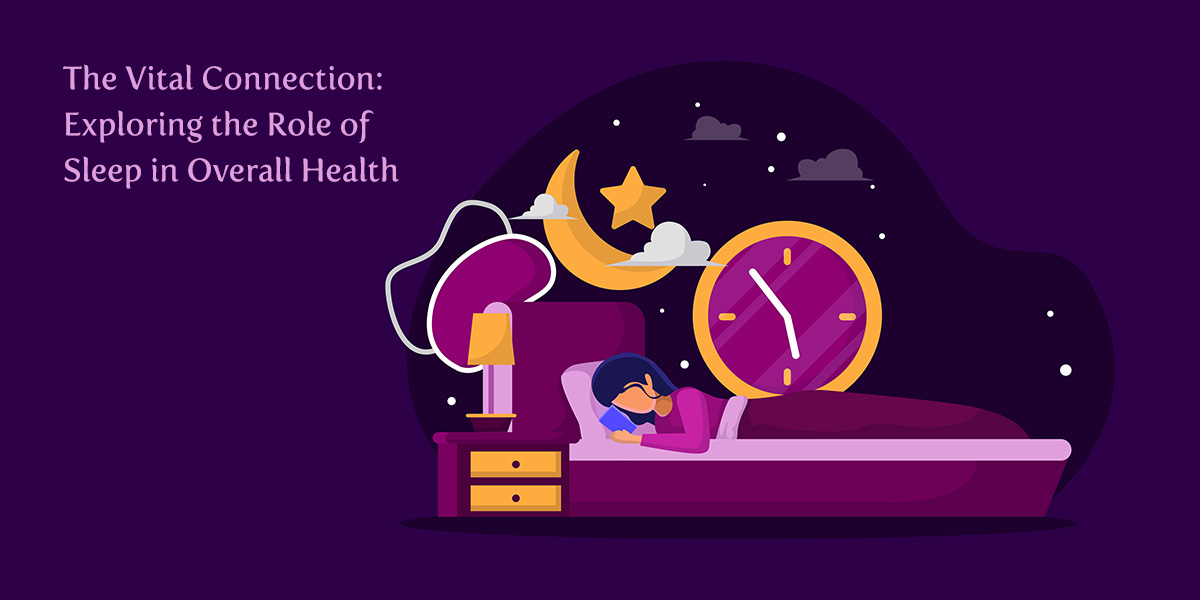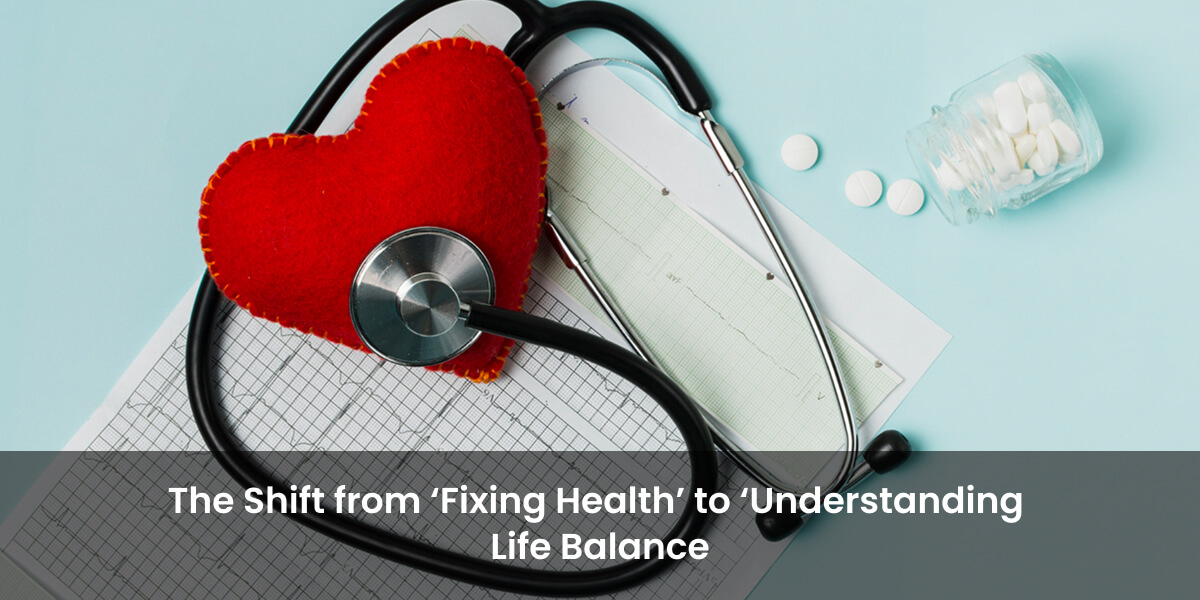Significance of Sleep in Maintaining Overall Health
Sleep is a fundamental and essential aspect of maintaining overall health and well-being. It plays a crucial role in various physiological, psychological, and cognitive functions. The significance of sleep in maintaining overall health cannot be overstated, and here are some key reasons why it is so important:
- Restoration and Healing: During sleep, the body undergoes a variety of restorative processes. These processes include tissue repair, muscle growth, and the release of hormones that support growth and repair. Sleep allows the body to heal and recover from the wear and tear of daily life.
- Immune System Function: Sleep is closely linked to the immune system. Inadequate sleep can weaken the immune response, making the body more susceptible to infections and illnesses. Consistent, quality sleep helps to strengthen the immune system and enhance its ability to fight off infections.
- Cognitive Function: Sleep is vital for optimal cognitive function. It supports memory consolidation, problem-solving, creativity, and decision-making. Getting enough restorative sleep helps enhance attention, concentration, and overall mental acuity.
- Emotional Well-being: Lack of sleep can lead to mood disturbances, including irritability, anxiety, and depression. Adequate sleep is essential for emotional regulation and maintaining a positive outlook on life.
- Metabolic Health: Sleep plays a role in regulating hormones that control appetite and metabolism. Inadequate sleep is associated with an increased risk of obesity, insulin resistance, and type 2 diabetes.
- Cardiovascular Health: Chronic sleep deprivation is linked to an increased risk of heart disease, high blood pressure, and stroke. Quality sleep supports a healthy cardiovascular system.
- Hormonal Regulation: Sleep is crucial for the regulation of various hormones, including those that influence growth, stress response, and reproductive health. Disrupted sleep patterns can lead to hormonal imbalances.
- Physical Performance: Athletes and active individuals often require sufficient sleep for optimal physical performance and recovery. Sleep helps with coordination, muscle function, and overall athletic performance.
- Stress Reduction: Sleep is a natural stress reducer. It helps the body recover from daily stressors and maintain a balanced stress response system.
- Longevity: There is evidence to suggest that individuals who consistently get enough high-quality sleep tend to live longer, healthier lives.
- Brain Health: Adequate sleep is associated with a reduced risk of neurodegenerative conditions like Alzheimer’s disease and dementia.
- Safety: Sleep deprivation can impair cognitive and motor functions, increasing the risk of accidents and injuries, especially when driving or operating machinery.
The ideal amount of sleep can vary from person to person, but most adults need 7-9 hours of quality sleep each night. It’s also important to maintain a regular sleep schedule and practice good sleep hygiene to ensure the best possible sleep quality.
Chronic sleep deprivation or sleep disorders can have serious health consequences. If you are experiencing persistent sleep problems, it is advisable to consult a healthcare professional or sleep specialist for guidance and treatment. Prioritizing sleep is a fundamental step in maintaining and promoting overall health and well-being.
The impact of sleep deprivation on health
Sleep deprivation, whether chronic or acute, can have a significant and wide-ranging impact on health. It affects various aspects of physical, mental, and emotional well-being. Here are some of the key ways in which sleep deprivation can negatively impact health:
- Cognitive Impairment: Lack of sleep can lead to reduced cognitive function, including difficulties with concentration, memory, and problem-solving. This can affect daily tasks, work, and academic performance.
- Mood Disturbances: Sleep deprivation is strongly linked to mood disturbances, including irritability, mood swings, increased stress, anxiety, and even depression. It can exacerbate existing mental health conditions.
- Impaired Judgment: Sleep-deprived individuals may exhibit poor decision-making and impaired judgment, which can lead to accidents and risky behaviors.
- Physical Health Issues: Sleep deprivation is associated with a range of physical health problems, including:
- Increased risk of obesity: Sleep deprivation disrupts hormones related to appetite regulation, leading to overeating and weight gain.
- Cardiovascular issues: It can raise blood pressure, increase the risk of heart disease, and contribute to stroke.
- Weakened immune system: Sleep-deprived individuals are more susceptible to infections and illnesses.
- Diabetes risk: Chronic sleep deprivation is linked to insulin resistance and an increased risk of type 2 diabetes.
- Gastrointestinal problems: It can exacerbate conditions like irritable bowel syndrome.
- Inflammation: Sleep deprivation can trigger an inflammatory response in the body, which is associated with chronic diseases like arthritis and some cancers.
- Hormonal Imbalance: Sleep is crucial for hormone regulation, and inadequate sleep can disrupt the balance of various hormones, including those related to growth, stress, and reproductive health.
- Weakened Immune Function: Sleep is essential for a healthy immune system. Lack of sleep can impair the body’s ability to fight off infections and recover from illnesses.
- Chronic Conditions: Long-term sleep deprivation is associated with a higher risk of chronic conditions, such as heart disease, diabetes, and certain neurological disorders.
- Increased Pain Sensitivity: Sleep deprivation can lower the pain threshold, making individuals more sensitive to pain and discomfort.
- Decreased Physical Performance: Athletes and physically active individuals may experience reduced coordination, muscle function, and overall athletic performance due to sleep deprivation.
- Reduced Libido and Reproductive Issues: Sleep deprivation can lead to decreased libido and sexual dysfunction. In men, it may reduce testosterone levels, while in women, it can disrupt menstrual cycles and fertility.
- Risk of Accidents: Fatigue resulting from sleep deprivation can impair reaction times and increase the risk of accidents, especially when driving or operating heavy machinery.
It’s important to note that the effects of sleep deprivation can vary from person to person, and some individuals may be more resilient to its negative impacts than others. However, chronic sleep deprivation should not be taken lightly, as it can lead to serious health consequences. To maintain good health and well-being, it is crucial to prioritize and ensure adequate, high-quality sleep on a regular basis. If you consistently experience sleep problems, consider seeking help from a healthcare professional or sleep specialist to identify and address the underlying causes.
Tips for getting a good night’s sleep
Getting a good night’s sleep is crucial for your overall health and well-being. Here are some tips to help you improve your sleep quality and establish healthy sleep habits:
- Create a Consistent Sleep Schedule: Try to go to bed and wake up at the same time every day, even on weekends. This helps regulate your body’s internal clock and improve sleep quality.
- Create a Relaxing Bedtime Routine: Establish a calming pre-sleep routine to signal to your body that it’s time to wind down. This can include activities like reading a book, taking a warm bath, or practicing relaxation techniques.
- Optimize Your Sleep Environment: Make sure your bedroom is conducive to sleep. Keep the room cool, dark, and quiet. Consider using blackout curtains and earplugs if needed. Invest in a comfortable mattress and pillows.
- Limit Exposure to Screens: The blue light emitted by phones, tablets, and computers can interfere with your sleep by suppressing the production of melatonin, a sleep-inducing hormone. Try to avoid screens for at least an hour before bedtime.
- Watch Your Diet: Avoid large meals, caffeine, and alcohol close to bedtime. These can disrupt your sleep or make it more difficult to fall asleep.
- Exercise Regularly: Regular physical activity can improve sleep, but try to finish your workouts a few hours before bedtime. Exercising too close to bedtime can have the opposite effect.
- Manage Stress: High stress levels can interfere with sleep. Practice stress-reduction techniques like meditation, deep breathing, or progressive muscle relaxation to calm your mind before bedtime.
- Limit Naps: If you take daytime naps, limit them to 20-30 minutes and avoid napping late in the day, as this can interfere with nighttime sleep.
- Avoid Stimulants: Stay away from stimulating activities or discussions before bedtime. Engaging in heated debates, for example, can make it difficult to relax.
- Get Sunlight Exposure: Exposure to natural light during the day helps regulate your circadian rhythm. Spend time outdoors during daylight hours to help maintain a healthy sleep-wake cycle.
- Limit Liquid Intake Before Bed: To avoid waking up in the middle of the night to use the bathroom, reduce your liquid intake in the hours leading up to bedtime.
- Keep a Sleep Diary: Monitor your sleep patterns and habits. A sleep diary can help identify trends and factors that may be affecting your sleep negatively.
- Limit Clock Watching: If you find yourself constantly checking the clock, it can cause anxiety and make it harder to fall asleep. Consider turning the clock away from your view.
- Consider White Noise: Some people find that white noise, such as a fan or a sound machine, can help drown out disruptive noises and create a more consistent sleep environment.
- Seek Professional Help: If you consistently have difficulty sleeping, experience chronic insomnia, or have other sleep disorders, consult a healthcare professional or a sleep specialist for evaluation and treatment.
Remember that improving your sleep habits may take time, so be patient and consistent with these strategies. Making these changes can have a significant positive impact on your sleep quality and overall health.
Conclusion
In conclusion, sleep is a fundamental and vital component of overall health and well-being. The significance of sleep in maintaining good health cannot be overstated. Adequate, high-quality sleep supports various physical, mental, and emotional functions, including restoration and healing, immune system function, cognitive performance, emotional well-being, and metabolic health. On the other hand, sleep deprivation can have serious consequences for health, leading to cognitive impairment, mood disturbances, physical health issues, hormonal imbalance, weakened immune function, and more.
To ensure a good night’s sleep and promote your overall health, it’s essential to establish healthy sleep habits and create a conducive sleep environment. Prioritizing sleep, maintaining a consistent sleep schedule, and practicing relaxation techniques are key to improving sleep quality. Avoiding stimulants, limiting screen time, and managing stress are also important factors in achieving restorative sleep. If you consistently struggle with sleep issues, consider seeking professional help to identify and address any underlying sleep disorders.
By recognizing the significance of sleep and implementing these tips for a good night’s sleep, you can enhance your overall health, cognitive function, emotional well-being, and quality of life. Good sleep is an essential part of a healthy and balanced lifestyle.
To learn more about holistic wellness and discover valuable insights to improve your overall health and well-being, consider attending the “Sakal Suhana Swasthyam – A Holistic Wellness Festival” taking place from December 1st to December 3rd, 2023, at Pandit Farms in Pune. Don’t miss this opportunity to engage with experts, explore wellness practices, and take steps towards a healthier life. For event details and registration, visit https://www.globalswasthyam.com/ or contact globalswasthyam@gmail.com. Join us at Sakal Suhana Swasthyam for a transformative wellness experience! Register Now For Free Pass: https://www.ticketkhidakee.com/suhana_swasthyam









Post a Comment